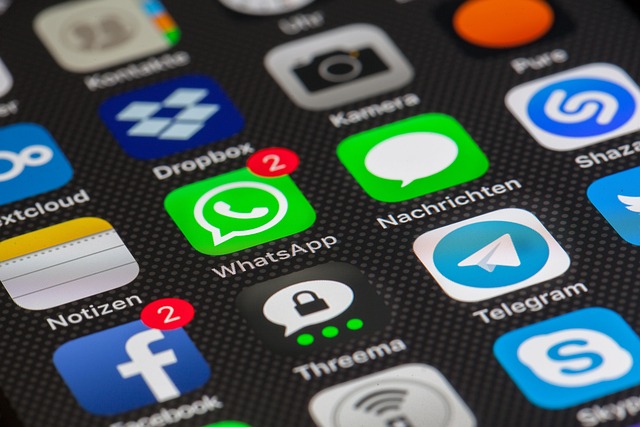The Impact of Apps on Modern Smartphone Usage
In today's digital age, smartphones have become an integral part of our daily lives, and at the heart of this revolution are the applications, or "apps," that power these devices. From communication and productivity to entertainment and health tracking, apps have transformed the way we interact with our smartphones and the world around us. This article explores the multifaceted impact of apps on modern smartphone usage, focusing on key aspects such as privacy, security, and battery life.

To protect privacy, users should regularly review app permissions and only grant access to essential features. Additionally, many smartphone operating systems now offer granular control over app permissions, allowing users to limit data access on a per-app basis. It’s also crucial to read privacy policies and terms of service before installing new apps to understand how your data may be used.
What security risks do apps pose to smartphones?
While apps bring tremendous functionality to our devices, they can also introduce security vulnerabilities. Malicious apps can compromise personal information, financial data, or even take control of device functions. The risk is particularly high when downloading apps from unofficial sources or third-party app stores.
To mitigate security risks, users should only download apps from official app stores like Google Play or the Apple App Store, which have vetting processes in place. Regularly updating apps and the smartphone’s operating system is also crucial, as updates often include security patches. Additionally, using a reputable mobile security app can provide an extra layer of protection against malware and other threats.
How do apps impact smartphone battery life?
One of the most noticeable effects of apps on smartphones is their impact on battery life. Certain apps, especially those that run in the background or use GPS and other sensors, can significantly drain a device’s battery. Social media apps, streaming services, and games are often among the biggest culprits when it comes to battery consumption.
To maximize battery life, users can take several steps. Disabling background app refresh for non-essential apps, reducing screen brightness, and limiting location services can help conserve power. Many smartphones also offer built-in battery optimization features that can identify and restrict battery-draining apps. For power users, portable battery packs or battery cases can provide additional charge on the go.
What are the most popular types of smartphone apps?
The app ecosystem is vast and diverse, catering to a wide range of user needs and interests. Some of the most popular categories include:
-
Social Media: Apps like Facebook, Instagram, and Twitter dominate this space, allowing users to stay connected with friends and share content.
-
Messaging: WhatsApp, Telegram, and Facebook Messenger facilitate instant communication and have largely replaced traditional SMS.
-
Productivity: Apps like Microsoft Office, Google Docs, and Evernote help users manage tasks, create documents, and stay organized.
-
Entertainment: Streaming services like Netflix, Spotify, and YouTube provide on-demand access to movies, music, and videos.
-
Health and Fitness: Apps such as MyFitnessPal, Strava, and Calm cater to users’ physical and mental well-being.
| App Category | Popular Examples | Key Features |
|---|---|---|
| Social Media | Facebook, Instagram | Content sharing, networking |
| Messaging | WhatsApp, Telegram | Instant messaging, voice/video calls |
| Productivity | Microsoft Office, Evernote | Document creation, note-taking |
| Entertainment | Netflix, Spotify | Streaming media, personalized content |
| Health & Fitness | MyFitnessPal, Calm | Activity tracking, meditation guides |
How can users manage app storage on their smartphones?
As users accumulate more apps, managing storage space becomes crucial. Modern smartphones often come with limited built-in storage, and apps can quickly fill this space, especially those that cache large amounts of data.
To manage app storage effectively, users can:
-
Regularly review and uninstall unused apps
-
Clear app caches periodically
-
Use cloud storage solutions for photos and documents
-
Opt for “lite” versions of apps when available
-
Consider smartphones with expandable storage options
Many devices also offer built-in storage management tools that can help identify space-hogging apps and suggest optimization strategies.
In conclusion, apps have revolutionized the smartphone experience, offering unprecedented functionality and convenience. However, they also present challenges in terms of privacy, security, and device performance. By understanding these impacts and implementing best practices for app management, users can maximize the benefits of their smartphone apps while minimizing potential drawbacks. As the app ecosystem continues to evolve, staying informed and proactive about app usage will be key to maintaining a positive and productive smartphone experience.




